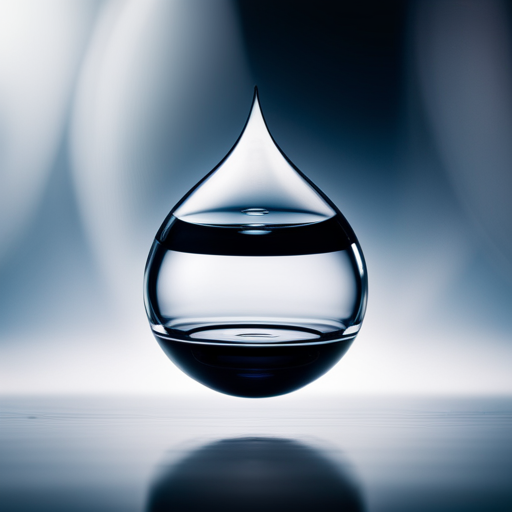If you’re concerned about the quality of your drinking water, you’re not alone. Nitrates, a common contaminant found in many groundwater sources, can pose serious health risks. Methemoglobinemia, also known as ‘blue baby syndrome,’is a condition that can occur in infants when nitrates are ingested. Additionally, exposure to nitrates has been linked to low birth weights and other health issues.
But don’t worry, there’s a solution: reverse osmosis.
Reverse osmosis is an effective treatment method for removing nitrates from drinking water. This process uses a semipermeable membrane to filter out contaminants, including nitrates. It’s a powerful tool that can provide peace of mind knowing that your drinking water is safe and free from harmful contaminants.
In this article, we’ll explore the power of reverse osmosis and why it’s a great option for removing nitrates from your drinking water. We’ll also cover prevention and testing methods to help you keep your water safe and healthy for you and your family.
Key Takeaways
– Nitrates in groundwater can pose serious health risks, including methemoglobinemia and low birth weights.
– Reverse osmosis is an effective treatment method for removing nitrates from drinking water, with the ability to remove up to 95-99% of nitrates from water, making it safe to drink.
– Whole-house RO filters can remove nitrates from all water sources, while under-sink RO filters are suitable for drinking and cooking water.
– Investing in an RO system and maintaining it properly can provide peace of mind knowing that water is safe for consumption.
Nitrates and Health Risks
You should be aware that exposure to nitrates in your drinking water can lead to serious health issues. Methemoglobinemia, a condition where the blood can’t carry oxygen properly, is a potential result of nitrate contamination. This can lead to symptoms such as shortness of breath, fatigue, and bluish skin.
Infants are particularly at risk for this condition, and exposure to high levels of nitrates during pregnancy can also lead to low birth weights and other health concerns. Preventing methemoglobinemia and other health issues caused by nitrates is essential for maintaining your overall well-being.
Installing a reverse osmosis system in your home is an effective way to remove nitrates from your drinking water. By removing these harmful substances, you can enjoy clean and safe water that’s free from the risks associated with nitrate contamination.
RO as Effective Treatment
Using an RO system can effectively treat water contaminated with harmful substances and make it safe for consumption. RO is one of the most effective treatment methods available for removing nitrates from drinking water. Here are some reasons why:
1. RO can remove up to 95-99% of nitrates from water, making it safe to drink.
2. Whole-house RO filters can remove nitrates from all water sources, including well water, while under-sink RO filters are suitable for drinking and cooking water.
3. RO systems are easy to use and require minimal maintenance, with filters needing to be changed every 6-12 months.
4. Compared to other treatment methods like distillation and ion exchange, RO is a more cost-effective and efficient way to remove nitrates from water.
When it comes to ensuring the safety of your drinking water, choosing the right treatment method is crucial. While there are other methods available, RO is a trusted and effective way to remove nitrates from your water. By investing in an RO system and maintaining it properly, you can have peace of mind knowing that your water is safe for you and your family to consume.
Prevention and Testing
To prevent nitrate contamination in your drinking water, it’s important to avoid applying fertilizers and pesticides near your well. You should also have it regularly inspected by a qualified professional. Nitrates can seep into the ground and contaminate the water supply.
Regular testing of your drinking water for nitrates is also recommended to ensure that the levels are within the safe limit established by the US EPA. Nitrate contamination can occur without any visible signs or changes in taste or odor.
Public water systems are required to test for nitrates and other contaminants regularly. However, if you have a private well, you can also have your water tested by a certified lab. It’s recommended to test your well water at least once a year, or more frequently if you suspect contamination.
By taking these steps, you can ensure that your drinking water is safe and free of harmful nitrates.
Conclusion
Congratulations! You now understand the importance of removing nitrates from drinking water and the power of reverse osmosis as an effective method to do so. By using reverse osmosis, you can rest assured that your drinking water is safe and free from harmful nitrates.
Remember, prevention is key. Regular testing of your drinking water is essential to ensure that it remains nitrate-free. Take steps to prevent nitrate contamination by avoiding the use of fertilizers and properly disposing of animal waste.
By taking these simple precautions, you can help protect your health and the health of your loved ones.
